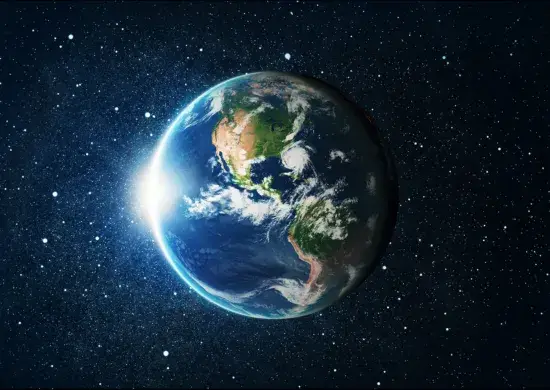

Water is essential to life on Earth, but have you ever wondered how old is water? It may surprise you to learn that some of the water on Earth could be older than the sun itself. Scientists estimate that there are water molecules on our planet that date back up to 4.6 billion years, predating the formation of the Milky Way.
According to The Huffington Post, a significant portion of the water we encounter in our daily lives, whether it’s for drinking, bathing, or swimming, actually originated from space. This water not only did not originate on Earth but also predates the formation of our planet.
How Old Are Water Molecules?
Determining the age of water molecules may sound peculiar since they all appear to have the same composition: two hydrogen atoms and one oxygen atom. However, researchers delved deeper into the elements that make up these molecules.
It all began with scientists attempting to determine the age of the solar system. They focused on studying the levels of hydrogen and deuterium in interstellar ice. Deuterium is a “heavy hydrogen” isotope that contains an additional neutron. This isotope can only form in extremely cold temperatures, such as those found in the vacuum of space.
Next, scientists created a computer model to simulate the conditions present during the formation of the Milky Way. The aim was to investigate whether the sun could have generated enough energy to produce deuterium levels observed in interstellar ice and some water on Earth.
The results indicated that the sun alone could not generate sufficient amounts of deuterium to explain the observed levels. Consequently, scientists concluded that the majority of water containing this “heavy hydrogen” must have originated from space, predating the formation of our solar system. Therefore, when we ask how old are water molecules, the answer points to the beginning of Earth’s formation.
Scientists believe that Earth’s water originated from a variety of sources, including comets and asteroids, during the early years of our planet’s formation. The water on Earth has undergone countless cycles of evaporation, condensation, and precipitation, but the molecules themselves have remained consistent throughout history. While the forms water takes may change (from ice to liquid to vapor), the molecules persist through the ages, passed down from one generation of living organisms to the next.
The concept of the water cycle is key to understanding how water remains constant over time. Water moves through the atmosphere, evaporates into the air, condenses into clouds, and falls as rain, entering rivers, oceans, and lakes. This process helps to maintain the same water molecules in continuous rotation. No matter where we are on Earth, the water we use today has likely been around for billions of years. So, how old is water on Earth? The molecules have been around since Earth’s early history and continue to be recycled.
What implications does this have for us?
The presence of “heavy hydrogen” in a significant portion of Earth’s water does not have a direct impact on human beings. It has always been present and will continue to be so. However, these findings have significant implications for other scientific pursuits.
According to the researchers involved in the study, as well as other experts commenting on the findings, this discovery has far-reaching implications for our search for extraterrestrial life. Water is a crucial resource for the evolution of life on a planet. Therefore, if water from space played a role in the formation of Earth, it is plausible that it also contributed to the creation of other planets within the Milky Way and beyond. This suggests that the likelihood of finding more life in the universe has increased.
In conclusion, the water on Earth has been around for as long as the planet itself. Whether you’re wondering how old is water or asking how old is the water on Earth, the answer is deeply rooted in the Earth’s history and its ongoing water cycle. The molecules that make up water are ancient, recycled through time, and remain a constant part of our world, regardless of the changes that occur around them.
This article was originally featured on Drinking Water Fountain’s blog.
